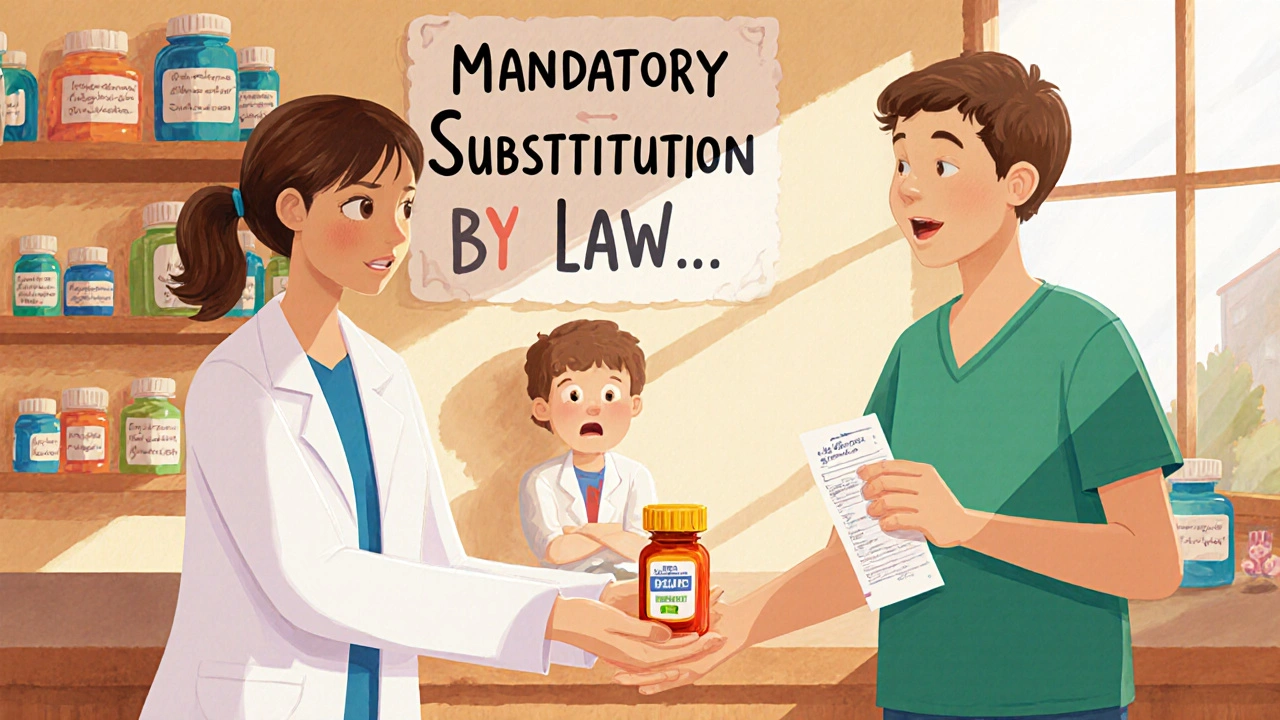Mandatory Substitution: What It Means for Your Prescription Costs
When your pharmacy gives you a mandatory substitution, a rule that forces your pharmacy to swap a brand-name drug for a generic version approved by your insurer. Also known as generic drug substitution, it’s not a suggestion—it’s a requirement built into how most insurance plans control costs. This isn’t about cutting corners. It’s about making sure you get the same medicine at a fraction of the price. In 2024, generics made up 90% of all prescriptions in the U.S. but only 12% of total drug spending. That’s billions saved—mostly because of rules like mandatory substitution.
Behind every mandatory substitution is a formulary, a list of drugs your insurance company agrees to cover, organized by cost tiers. Also known as tiered formulary, it’s managed by a P&T committee, a group of doctors and pharmacists who decide which drugs get preferred status. These committees don’t pick generics because they’re cheap—they pick them because studies show they work just as well as brand names. If your drug is on Tier 1, you pay the least. If it’s not on the list at all, you might pay full price—or get denied.
But mandatory substitution doesn’t always mean better outcomes. Some patients react differently to generic versions—maybe the filler ingredients cause stomach upset, or the absorption rate feels off. Your doctor can write "Do Not Substitute" on your prescription, but that’s not always easy. Insurers may still push back, especially if the generic is significantly cheaper. You have rights: you can appeal, ask for a prior authorization, or switch to another plan during open enrollment. The key is knowing when to push back—and when to accept the swap.
What you’ll find below are real stories and clear comparisons: how insurers decide which generics to cover, why some drugs get denied, how to fight a substitution you don’t trust, and what alternatives exist when the generic doesn’t work for you. From heart failure meds to antidepressants, these posts show how mandatory substitution plays out in real life—sometimes saving money, sometimes creating new problems. You’re not just reading about policy. You’re learning how to protect your health while navigating the system.
Mandatory vs Permissive Substitution: How State Laws Shape Generic Drug Access
- Beata Staszkow
- |
- |
- 12
Mandatory and permissive substitution laws determine whether pharmacists must or can switch brand-name drugs to generics. These state-level rules impact drug costs, adherence, and patient safety - with big differences across the U.S.
View more
